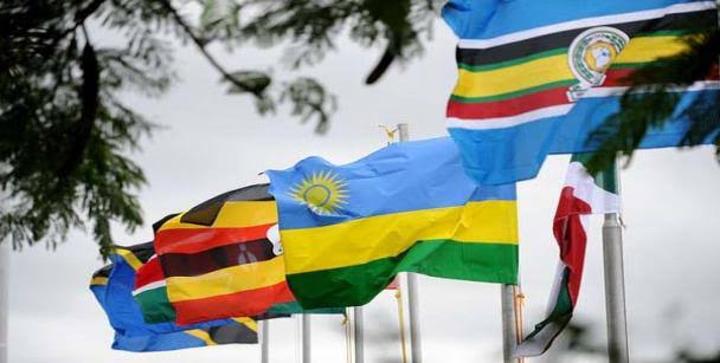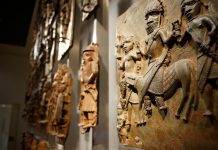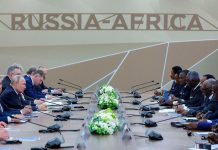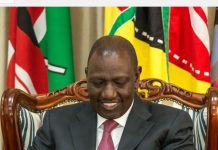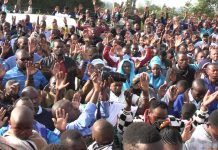Africa-Press – Kenya. THE 17th meeting of the East African Community (EAC) Sectoral Council on Education, Science and Technology, Culture and Sports (SCESTCS) has just been concluded in Dar es Salaam after deliberating on various issues, including roadmaps for implementation of Kiswahili and French as bloc’s official languages.
The Sectoral Council con- sidered matters of Education and Training; Culture and Sports; East African Kiswahili Commission (EAKC); the In my ter University Council for East Africa (IUCEA) and the East African Science and Technology Commission (EASTECO).
In her opening remarks, the Chairperson of the meeting, Dr Sarah Ruto, the Chief Administrative Secretary at the Ministry of Education, Kenya, commended the Secretariat for the achievements so far made in the sector.
Dr Ruto said that Education, Science and Technology were key to the region’s development, adding that there was still much more to be done especially in skilling the youths with the required skills and competencies.
Among matters considered by the Sectoral Council were the roadmaps for imple- mentation of Kiswahili and French as official languages of the community.
This was part of implementation of the directive of the 21st Summit of EAC Heads of State that adopted Kiswahili and French as Official Languages of the EAC.
The Sectoral Council urged the Secretariat to expeditiously implement the road maps and undertake necessary capacity building and other requirements to facilitate the use of the languages in official business of the Community.
The Sectoral Council fur- ther adopted the UNESCO dec- laration of July 7th as World Kiswahili Language Day and directed the EAC Secretariat to include it in the calendar of activities as an annual EAC event.
The Sectoral Council approved the inauguration of EAC World Kiswahili Language Day to be celebrated in Zanzibar on 7th July 2022 under the coordination of the East African Kiswahili Commission.
The Sectoral Council ap- proved the winners of the 2021 EAC Essay Writing Competition and further approved their presentation for awards by the Summit.
It emphasized on the urgency to finalise Annex VII of the Common Market Protocol on Mutual Recognition of Academic and Professional Qualifications (MRAs) to fast-track mobility of professionals and services in the Community.
Also approved by the Sectoral Council was the EAC Regional Bio-Economy Strategy that was presented by EASTECO.
The Sectoral further noted the progress being made in the harmonisation of Technical and Vocational Education and Training (TVET) through the Secretariat and IUCEA un- der the World Bank supported EASTRIP Project.
The Sectoral Council not- ed the achievements of the EAC Regional Centres of Excellence (ACE II Project) and achievements made within the EAC-KFW Scholarships programme that has led to more young East Africans benefiting from the scholar- ship and has enhanced mo- bility of students within the Community.
The ministers welcomed the proposed East African Stu- dents Mobility Scheme and directed the Secretariat to develop the modalities for sustainability of the EAC Scholarship Programmes.
They emphasised the ur- gency to finalise the TVET Harmonisation and finalisa- tion of the Regional Qualifica- tions Frameworks and Occu- pational Standards for TVET.
The ministers approved that the East African Art and Culture Festivals, popularly known as JAMAFEST be held in Bujumbura, Burundi from 4th -12th September 2022 while the 2nd Edition of the EAC Games would be held in Kigali, Rwanda between Au- gust and November 2023.
In his remarks, the EAC Deputy Secretary General in charge of the Productive and Social Sectors, Christophe Ba- zivamo, said that the community cannot attain her desired goals without deliberate investments and focus on these key areas. Bazivamo informed the delegates of the admission of the Democratic Republic of Congo (DRC) to the EAC and the opportunities presented by this development.
The Sectoral Council that was held in a hybrid format was attended by the respec- tive ministers from the partner states.
Dr Ruto represented Kenya, Burundi was represented by Prof Francois Havyarimana, Minister for National Education and Scientific Research; Tanzania had Prof Adolf Mkenda, Minister for Education, Science and Technology; Innocent Bashugwa-Ministry of President Office, Regional Administration and Local Government; Pauline Gekul, Deputy Minister for Culture, Arts and Sports and Tabia Mwita Maulid, Minister for Information, Youth,Culture and Sports, Zanzibar.
Rwanda was represented by Dr Valentine Uwamariya, Minister for Education, while the Uganda was represented by Gidudu Dominic Mafabi, Minister of State for Gender, Labour and Social Development. South Sudan was represented Albino Bol Dhieu, Minister for Youth and Sports.
For More News And Analysis About Kenya Follow Africa-Press

